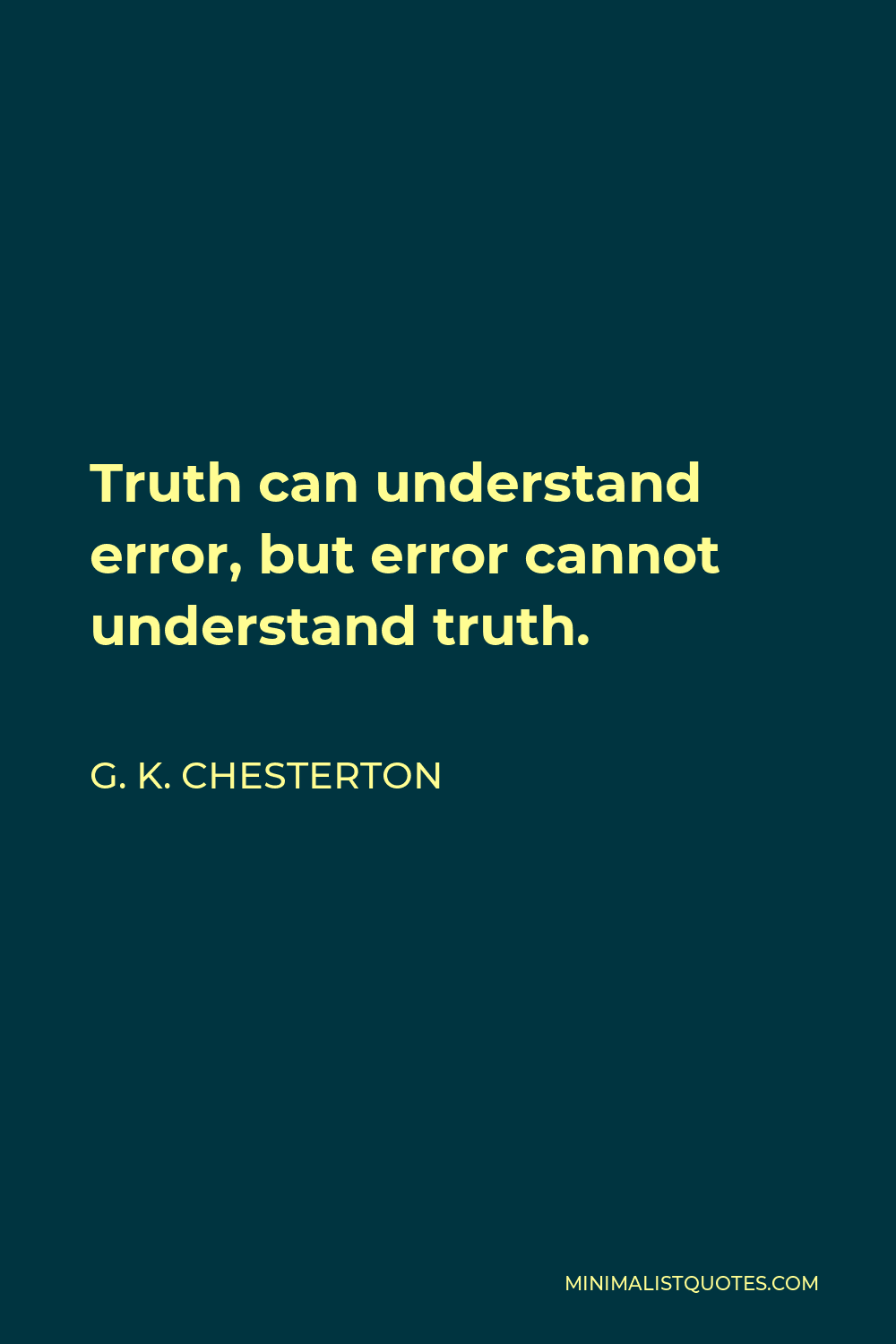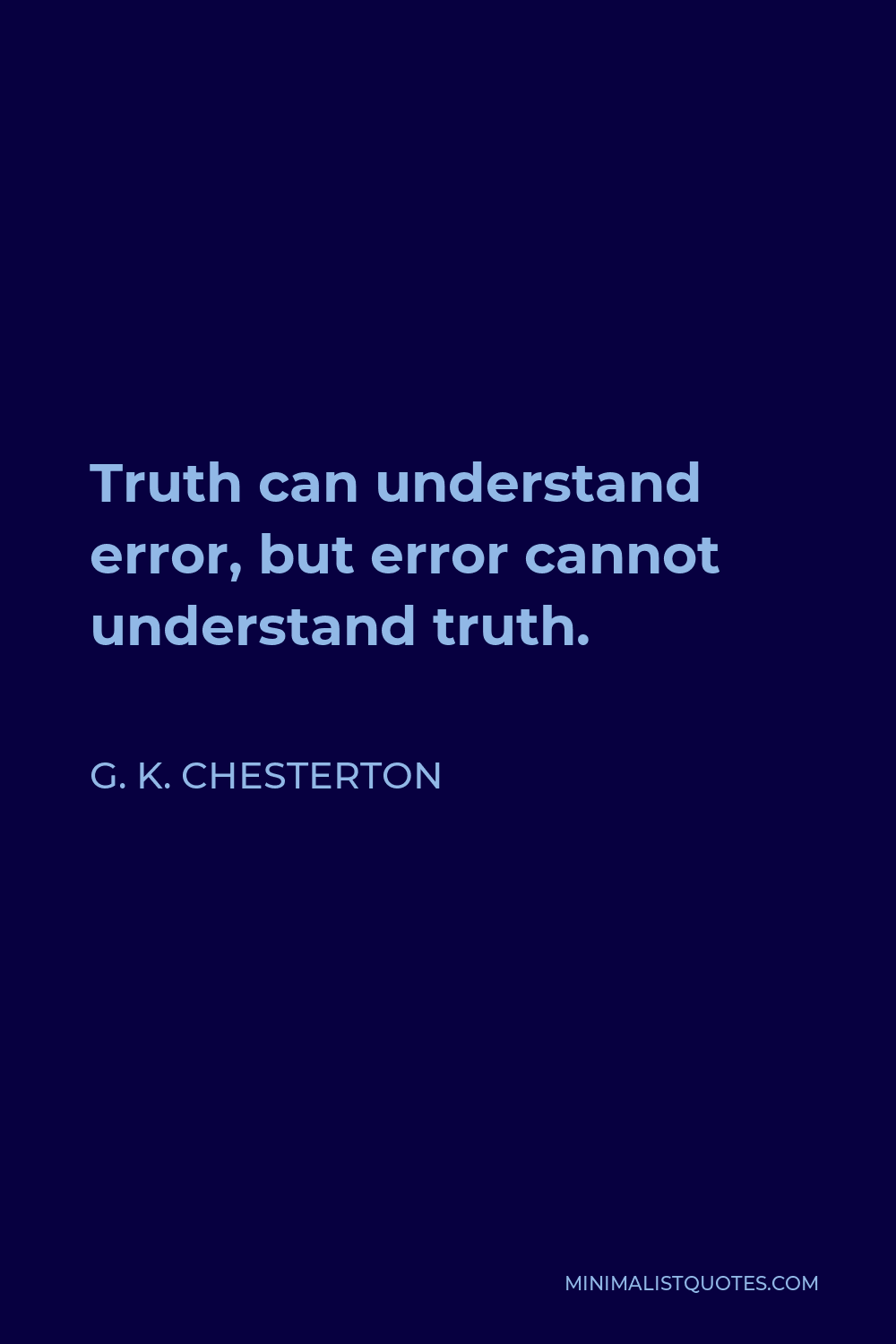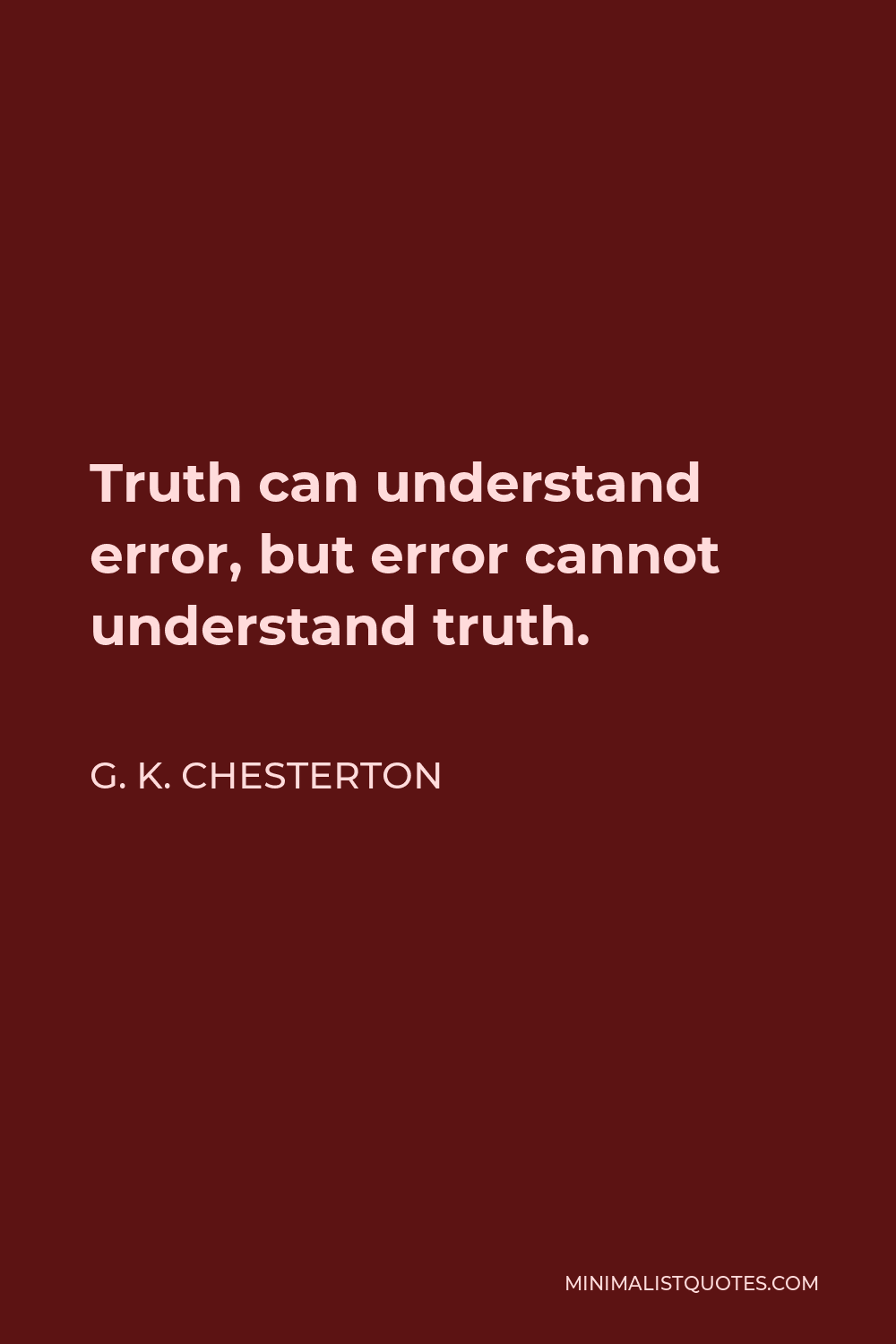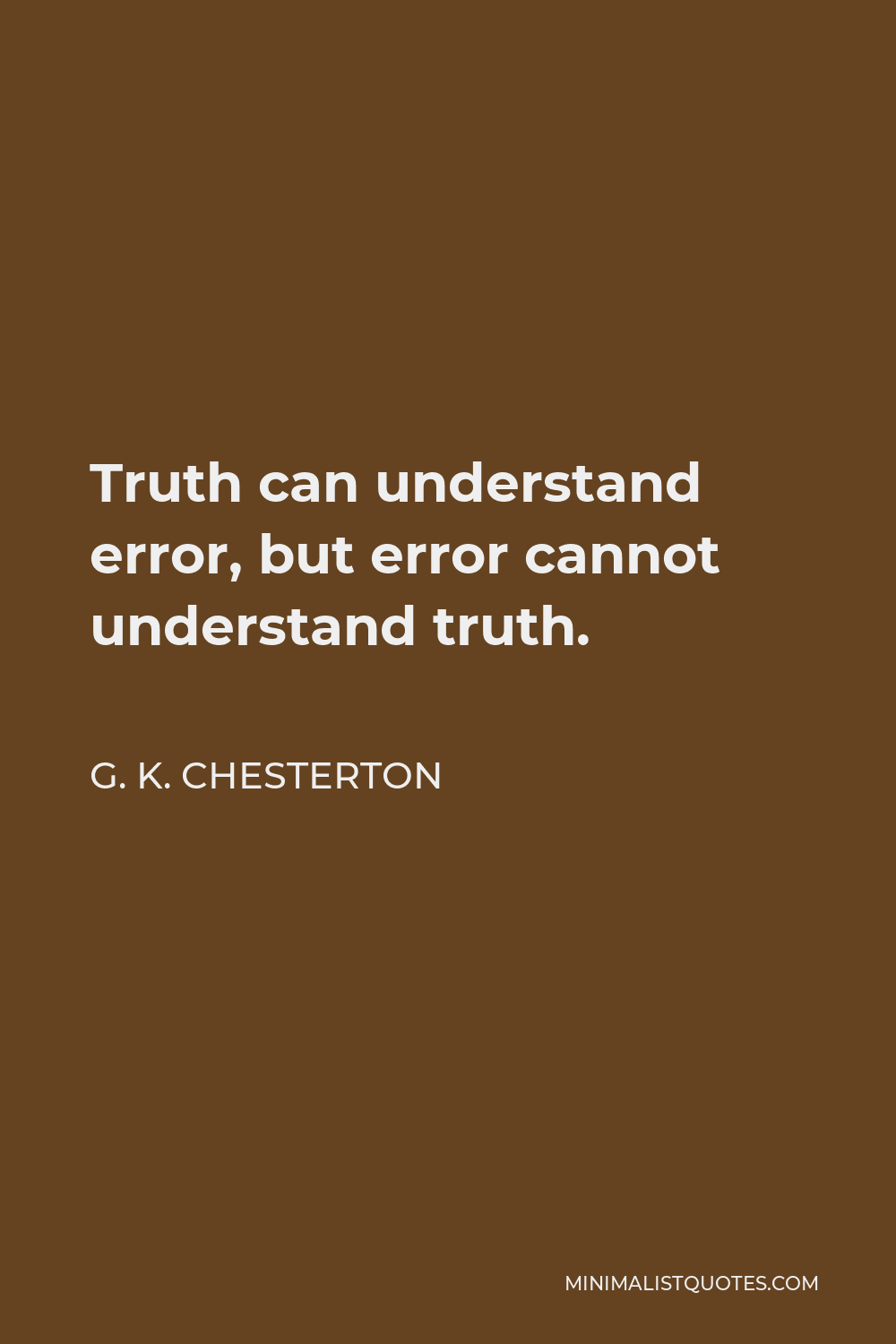The present condition of fame is merely fashion.
GILBERT K. CHESTERTONTruth can understand error, but error cannot understand truth.
More Gilbert K. Chesterton Quotes
-







-







People generally quarrel because they cannot argue.
GILBERT K. CHESTERTON -





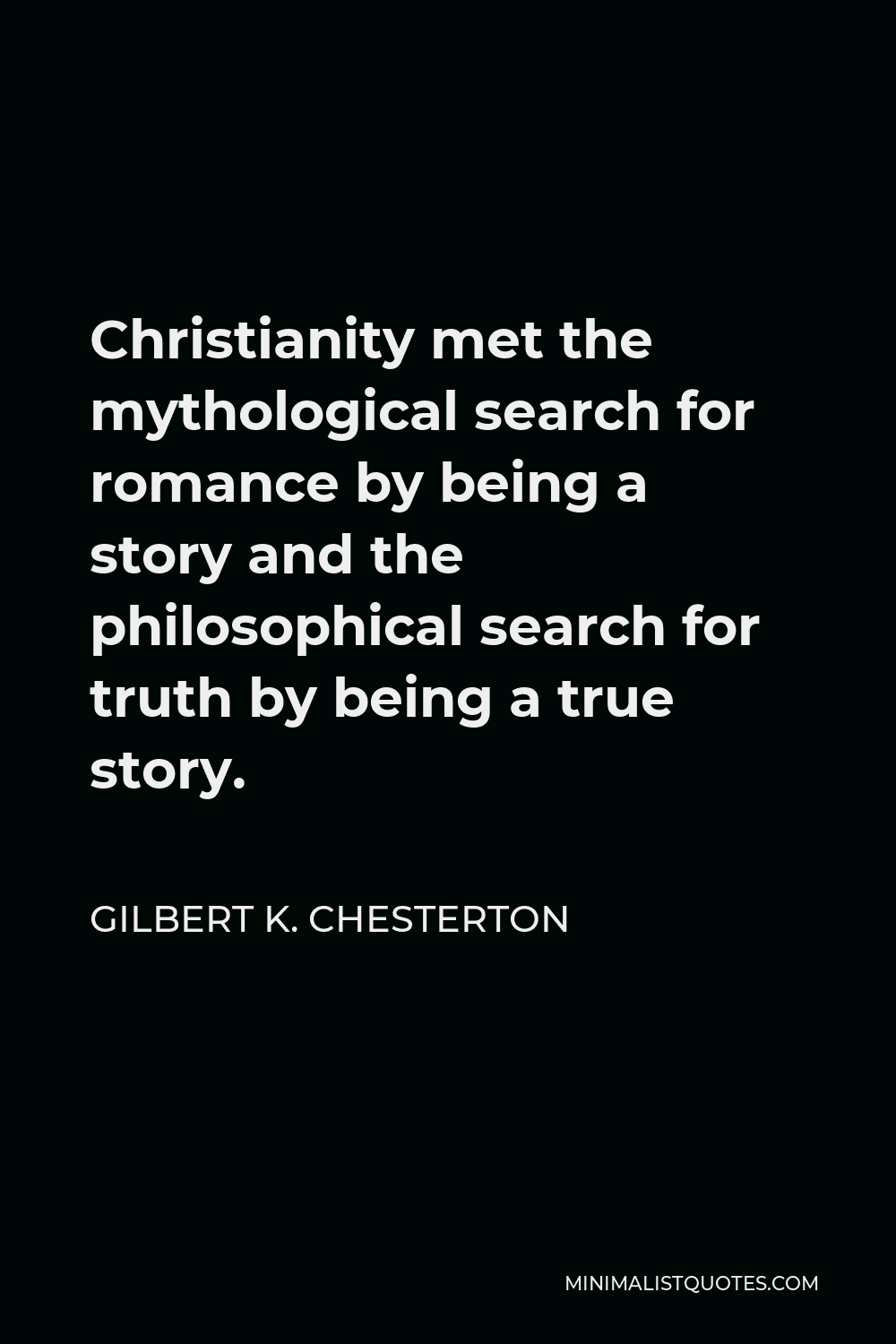
Christianity met the mythological search for romance by being a story and the philosophical search for truth by being a true story.
GILBERT K. CHESTERTON -





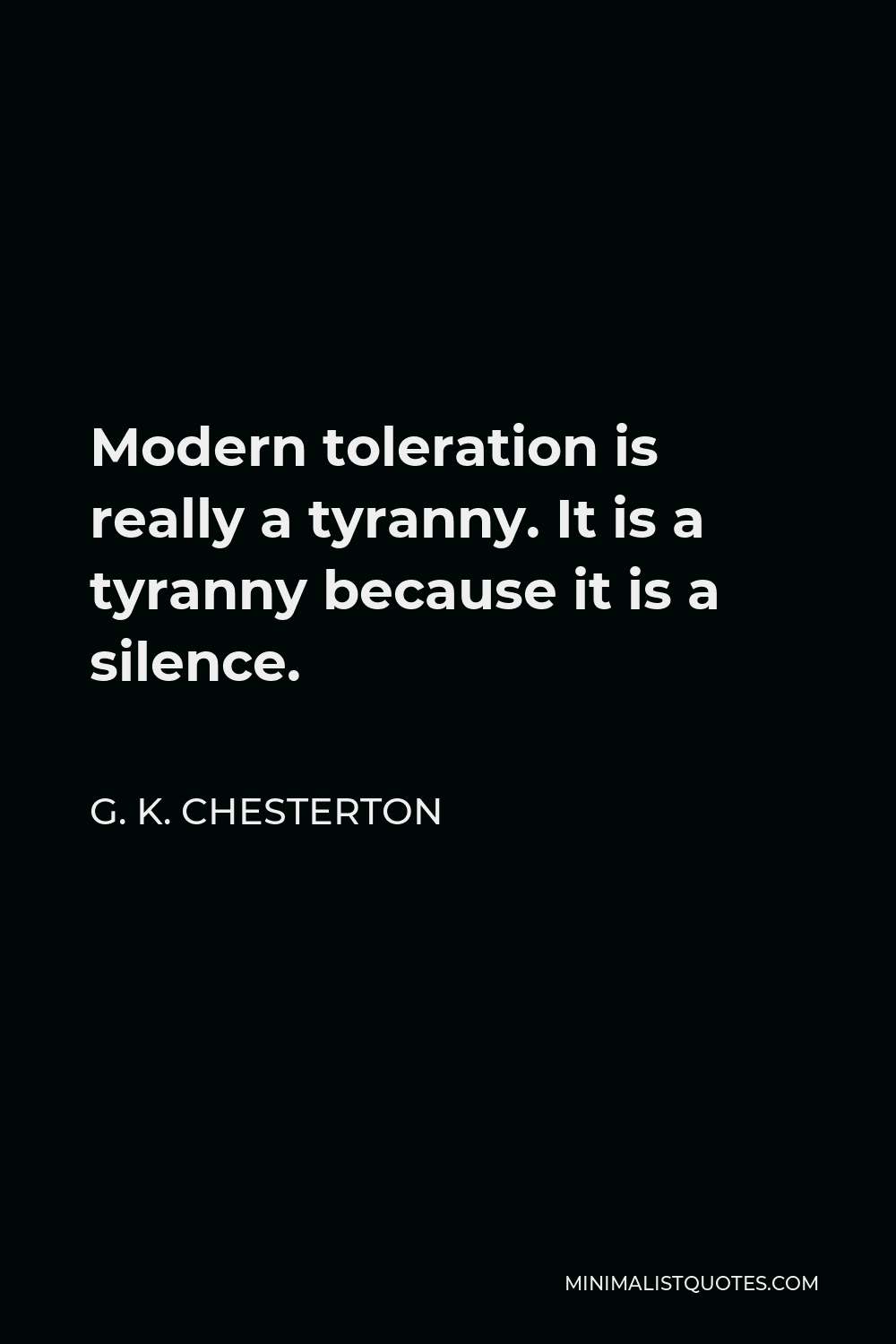
Modern toleration is really a tyranny. It is a tyranny because it is a silence.
GILBERT K. CHESTERTON -





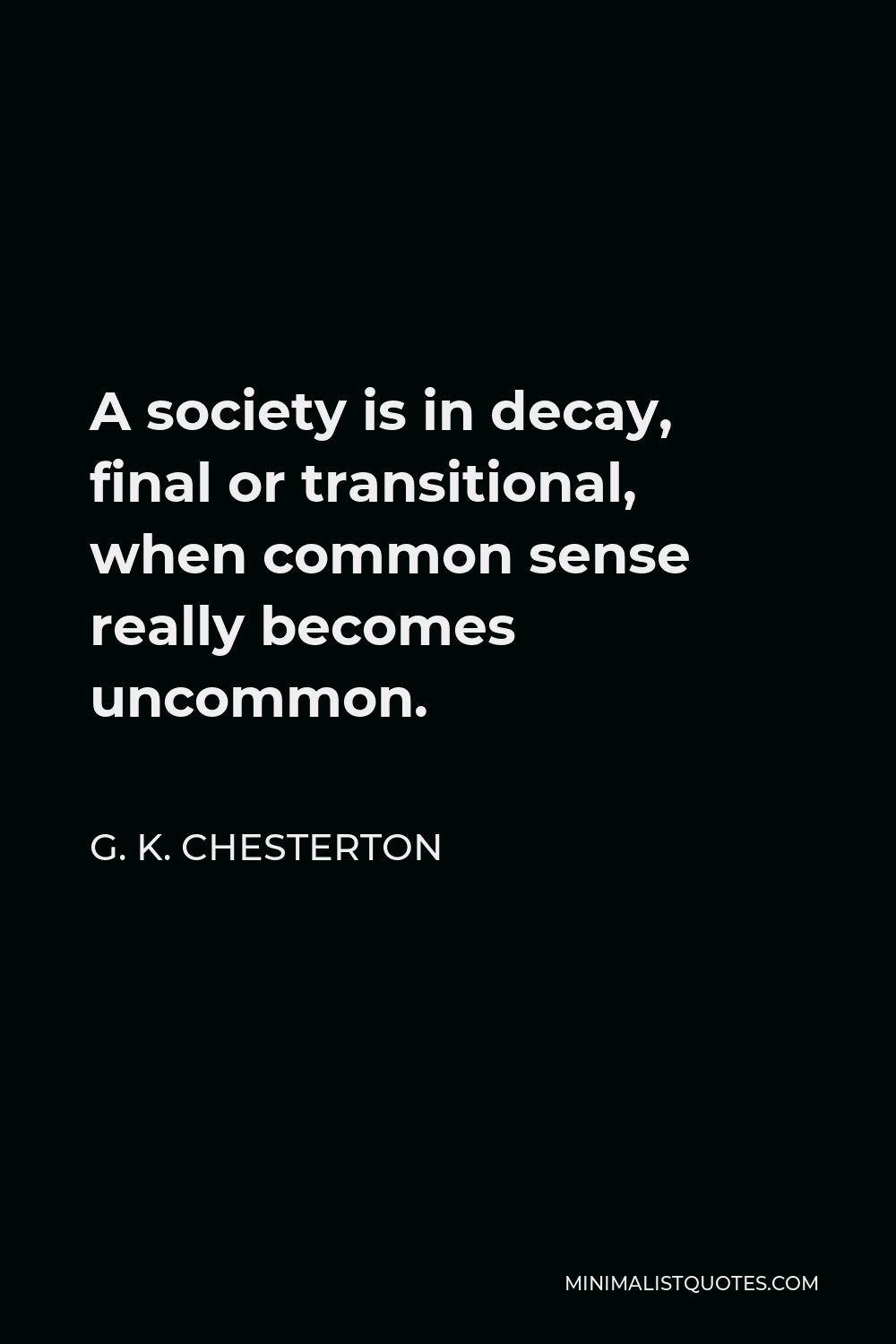
A society is in decay, final or transitional, when common sense really becomes uncommon.
GILBERT K. CHESTERTON -





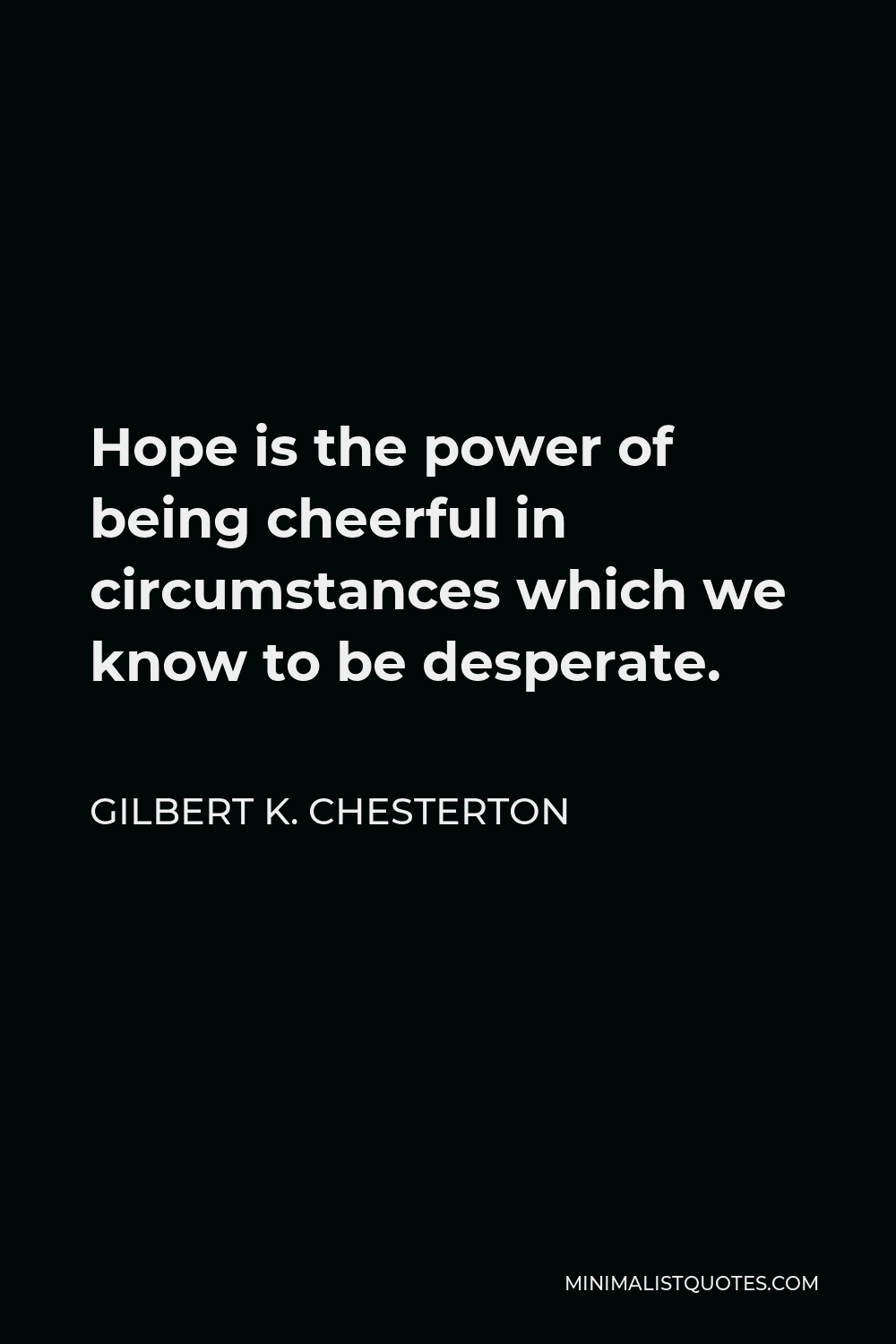
Hope is the power of being cheerful in circumstances which we know to be desperate.
GILBERT K. CHESTERTON -





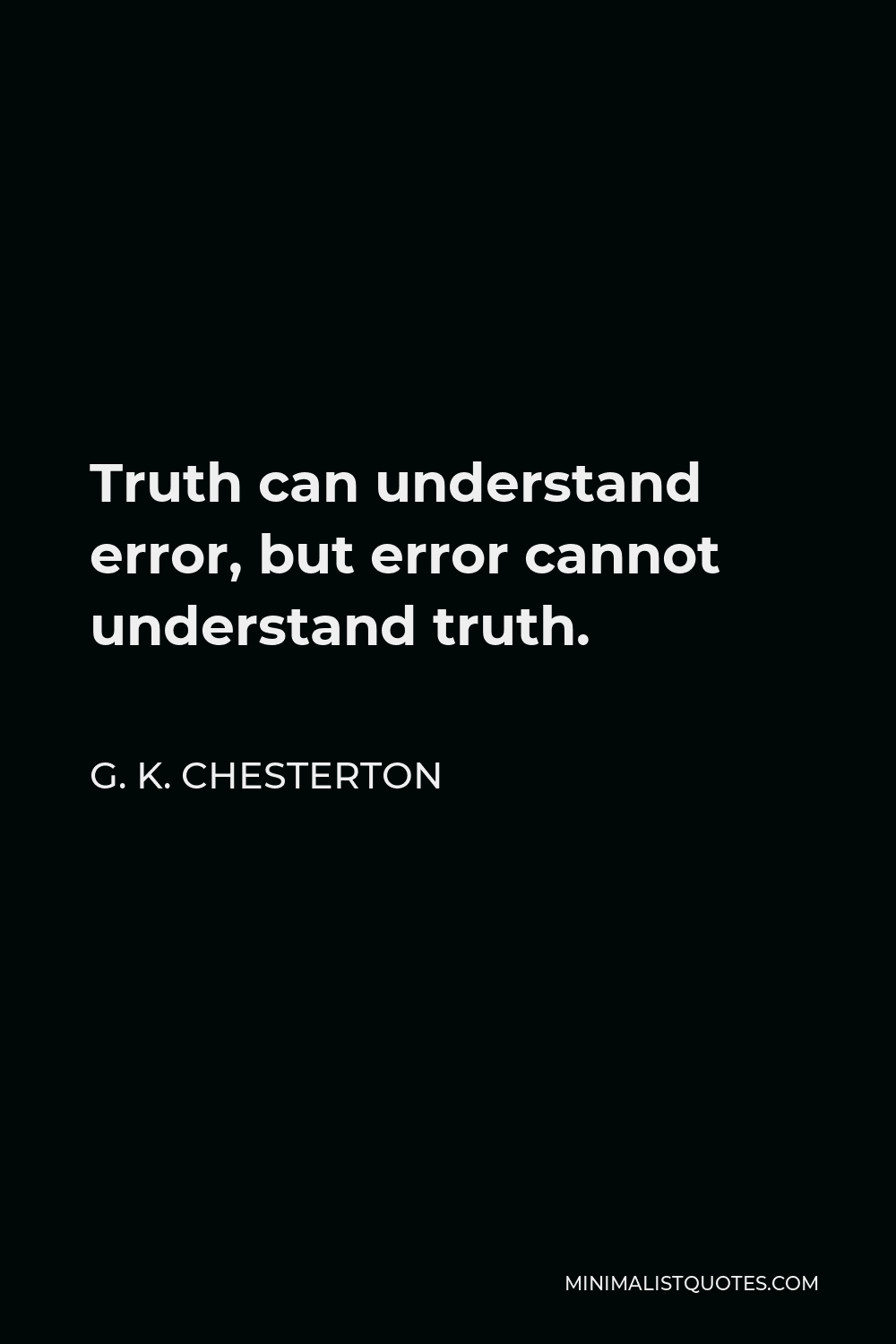
Truth can understand error, but error cannot understand truth.
GILBERT K. CHESTERTON -






The Reformer is always right about what’s wrong. However, he’s often wrong about what is right.
GILBERT K. CHESTERTON -






Dear Sir: Regarding your article ‘What’s Wrong with the World?’ I am. Yours truly.
GILBERT K. CHESTERTON -





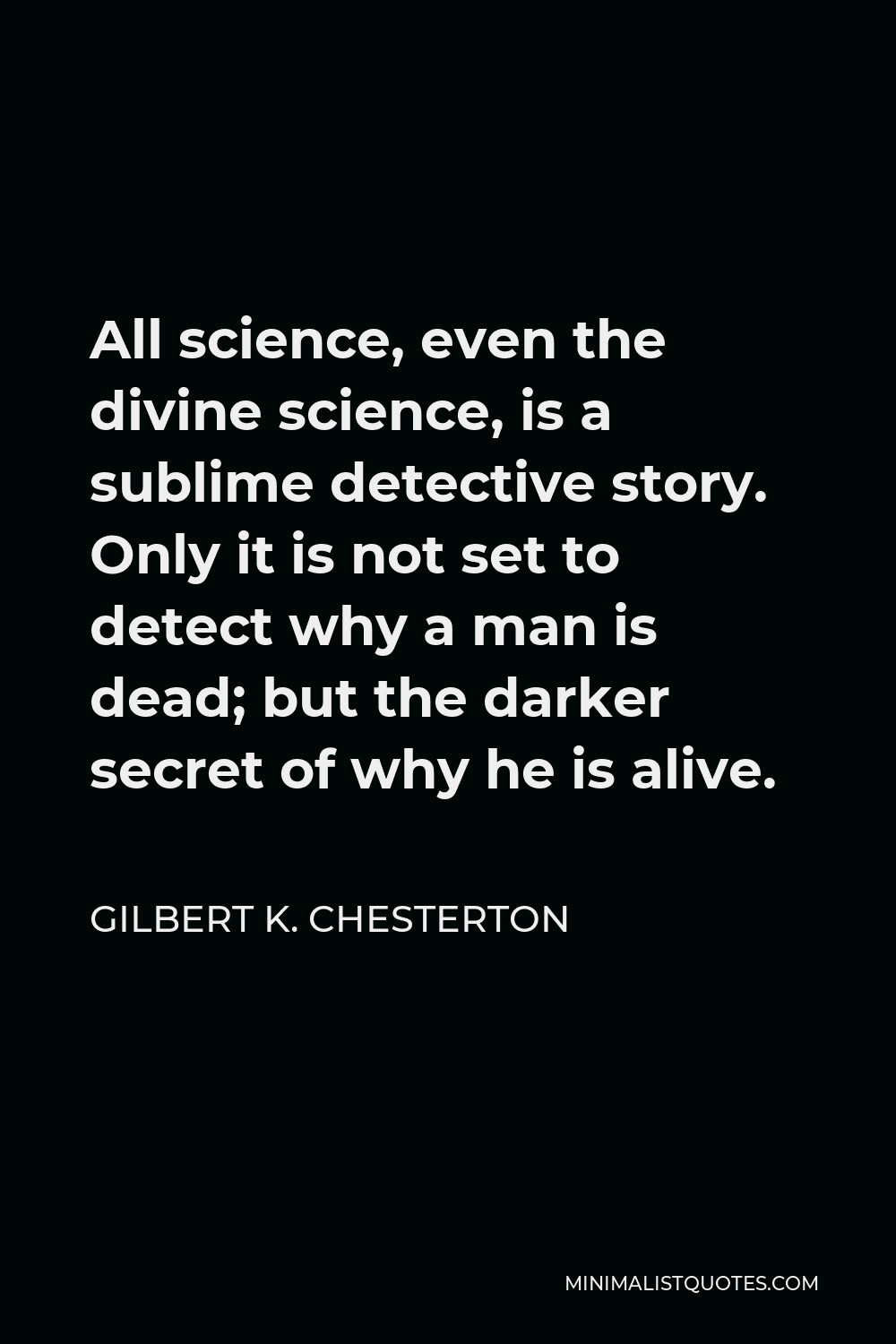
All science, even the divine science, is a sublime detective story. Only it is not set to detect why a man is dead; but the darker secret of why he is alive.
GILBERT K. CHESTERTON -





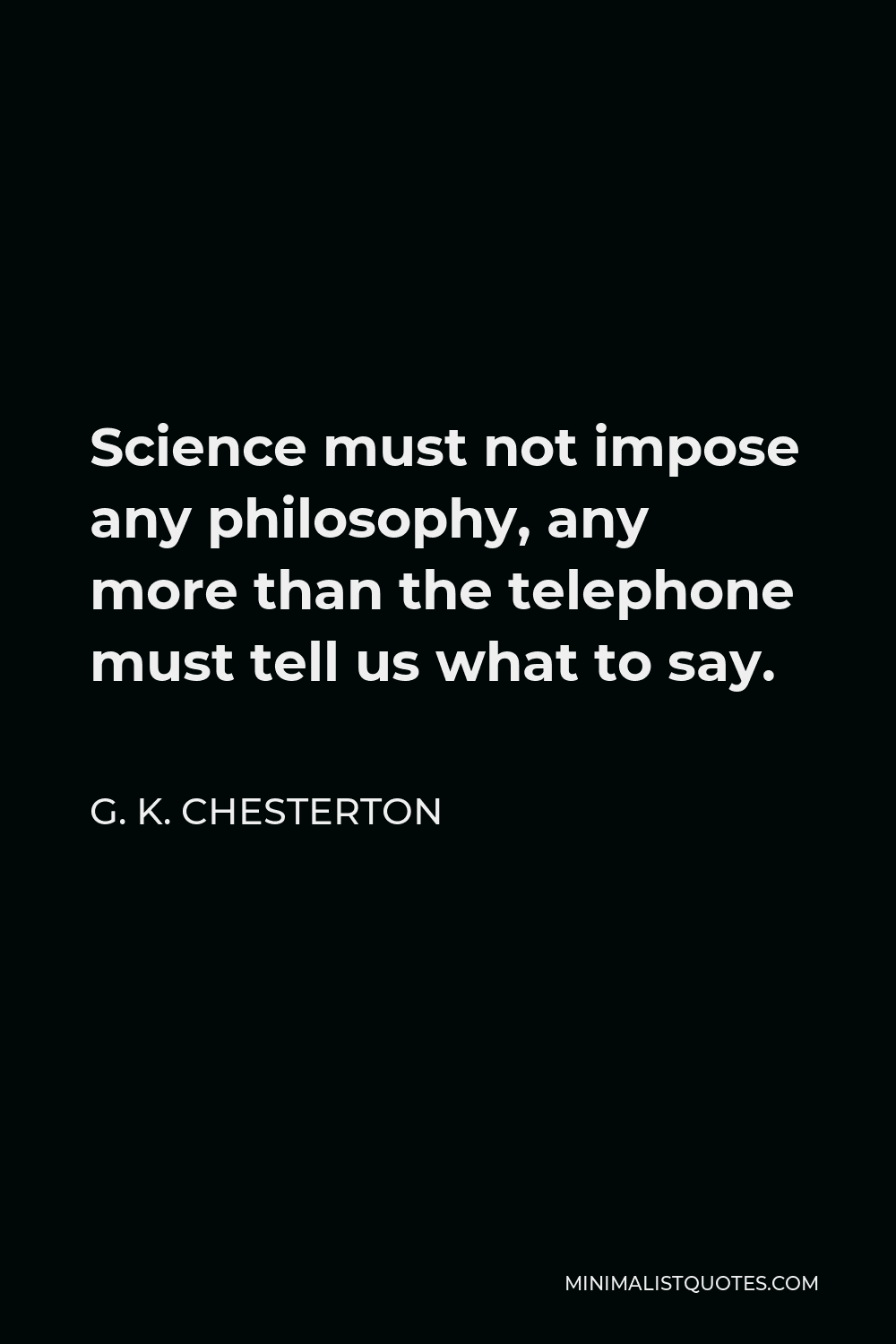
Science must not impose any philosophy, any more than the telephone must tell us what to say.
GILBERT K. CHESTERTON -





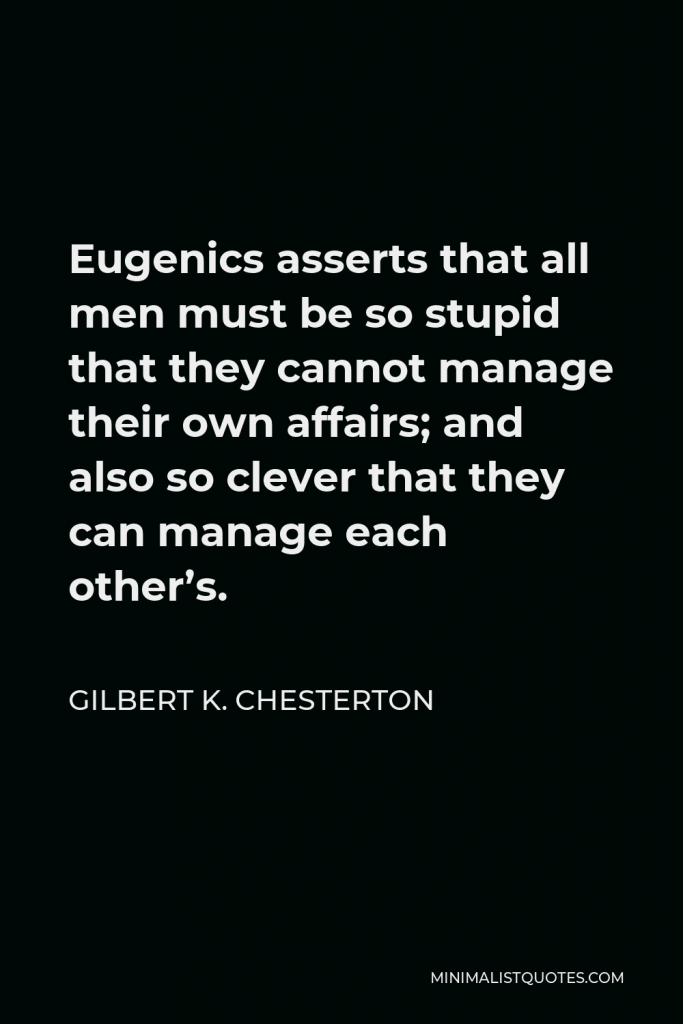

Eugenics asserts that all men must be so stupid that they cannot manage their own affairs; and also so clever that they can manage each other’s.
GILBERT K. CHESTERTON -





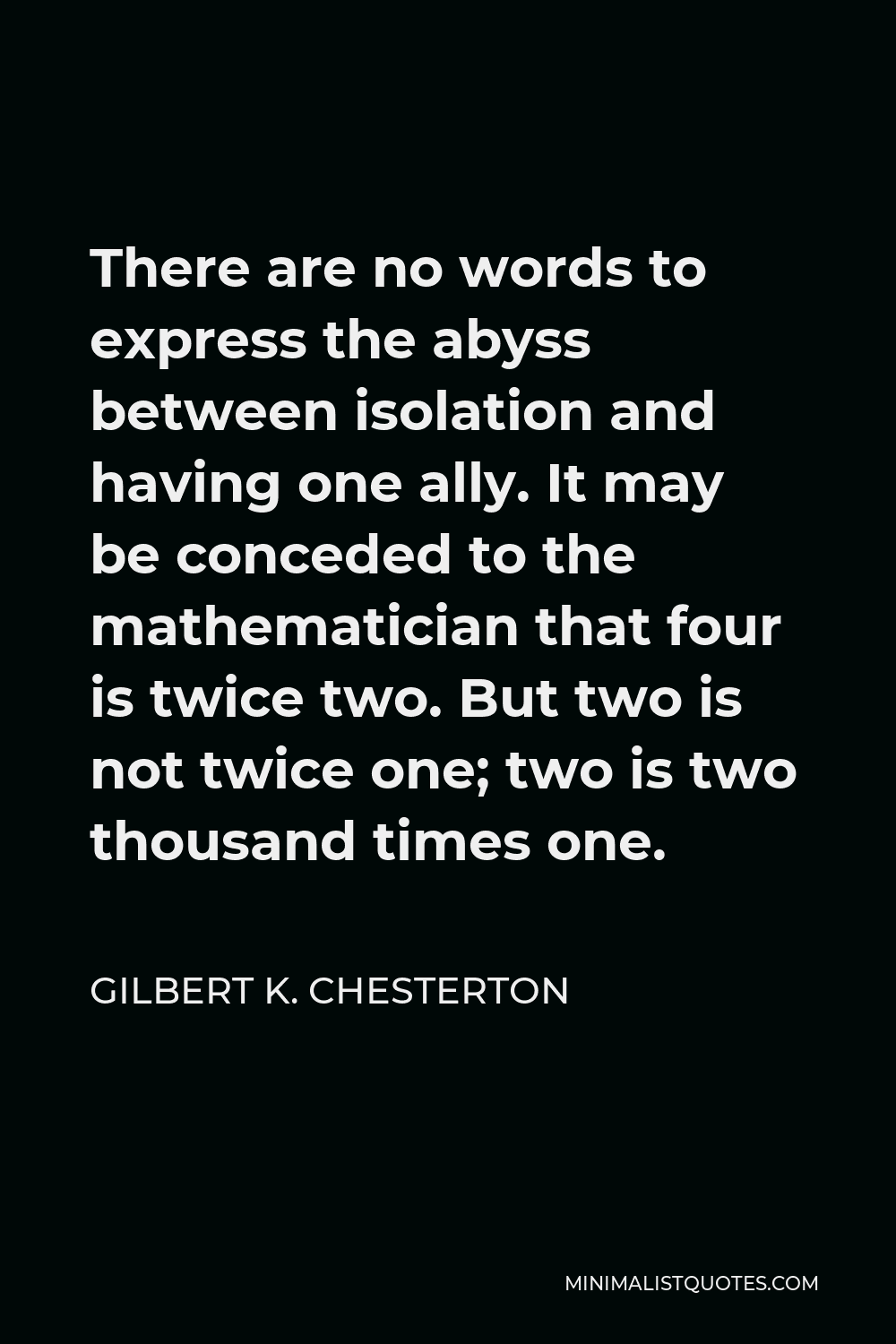
There are no words to express the abyss between isolation and having one ally. It may be conceded to the mathematician that four is twice two. But two is not twice one; two is two thousand times one.
GILBERT K. CHESTERTON -





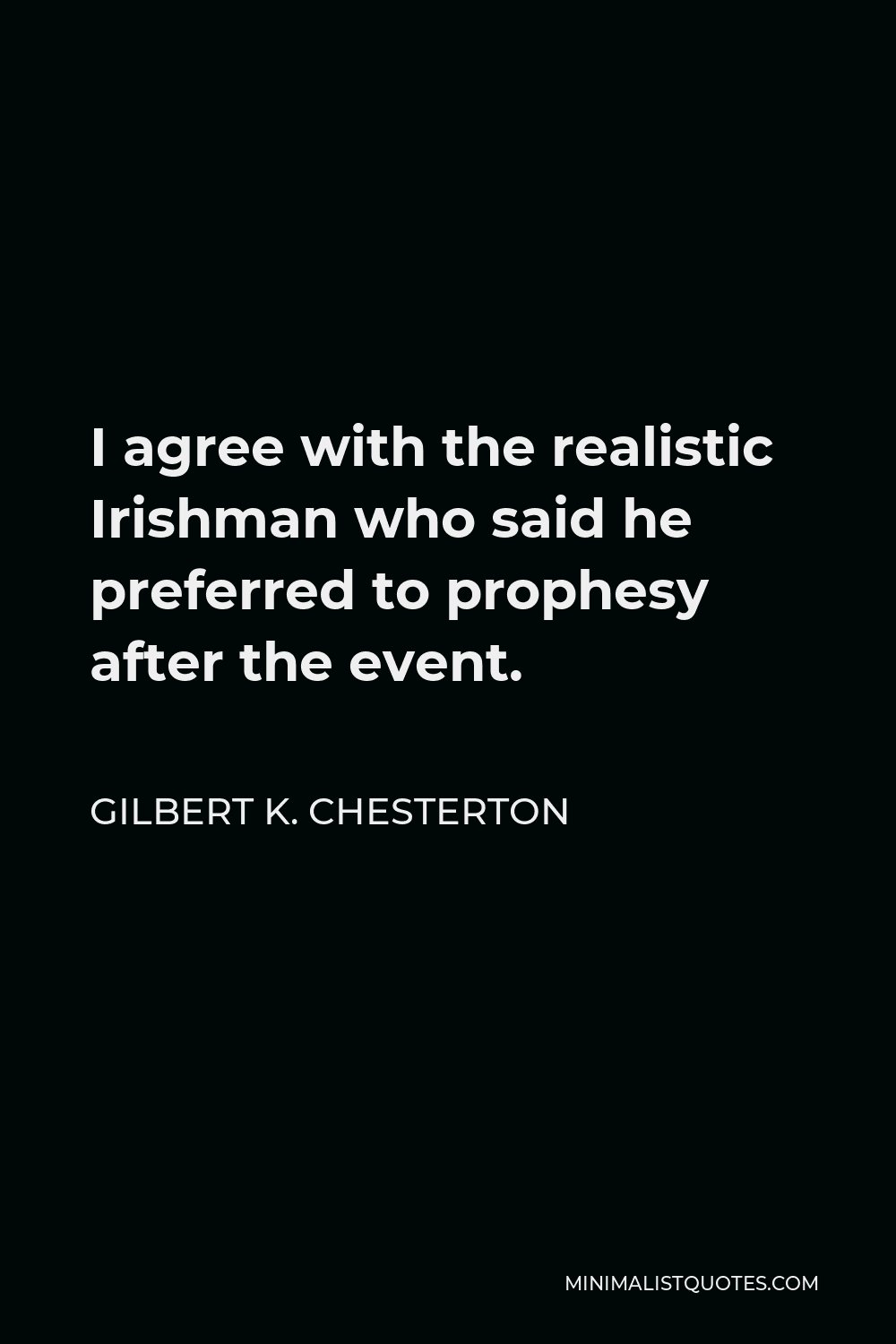
I agree with the realistic Irishman who said he preferred to prophesy after the event.
GILBERT K. CHESTERTON -





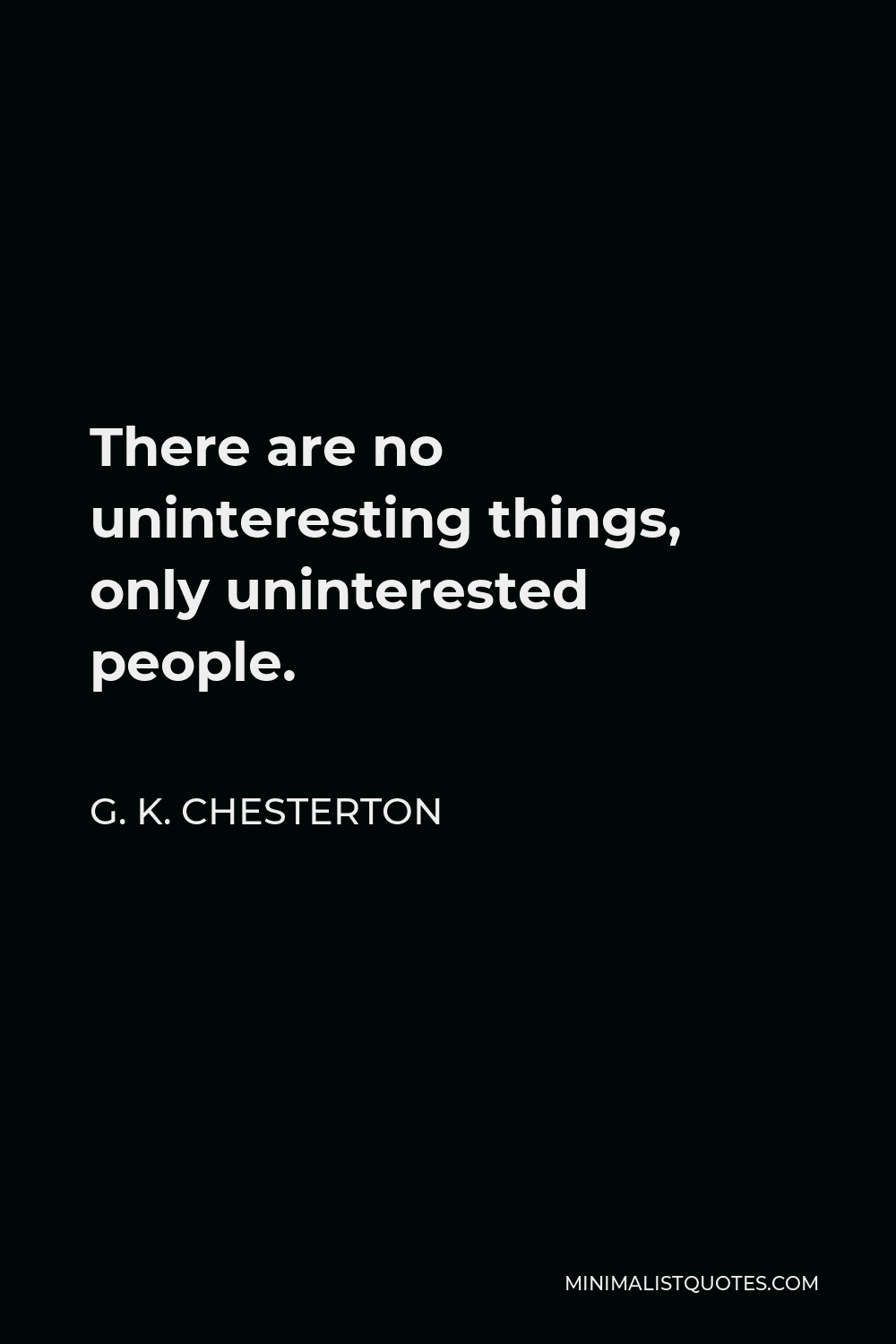
There are no uninteresting things, only uninterested people.
GILBERT K. CHESTERTON -





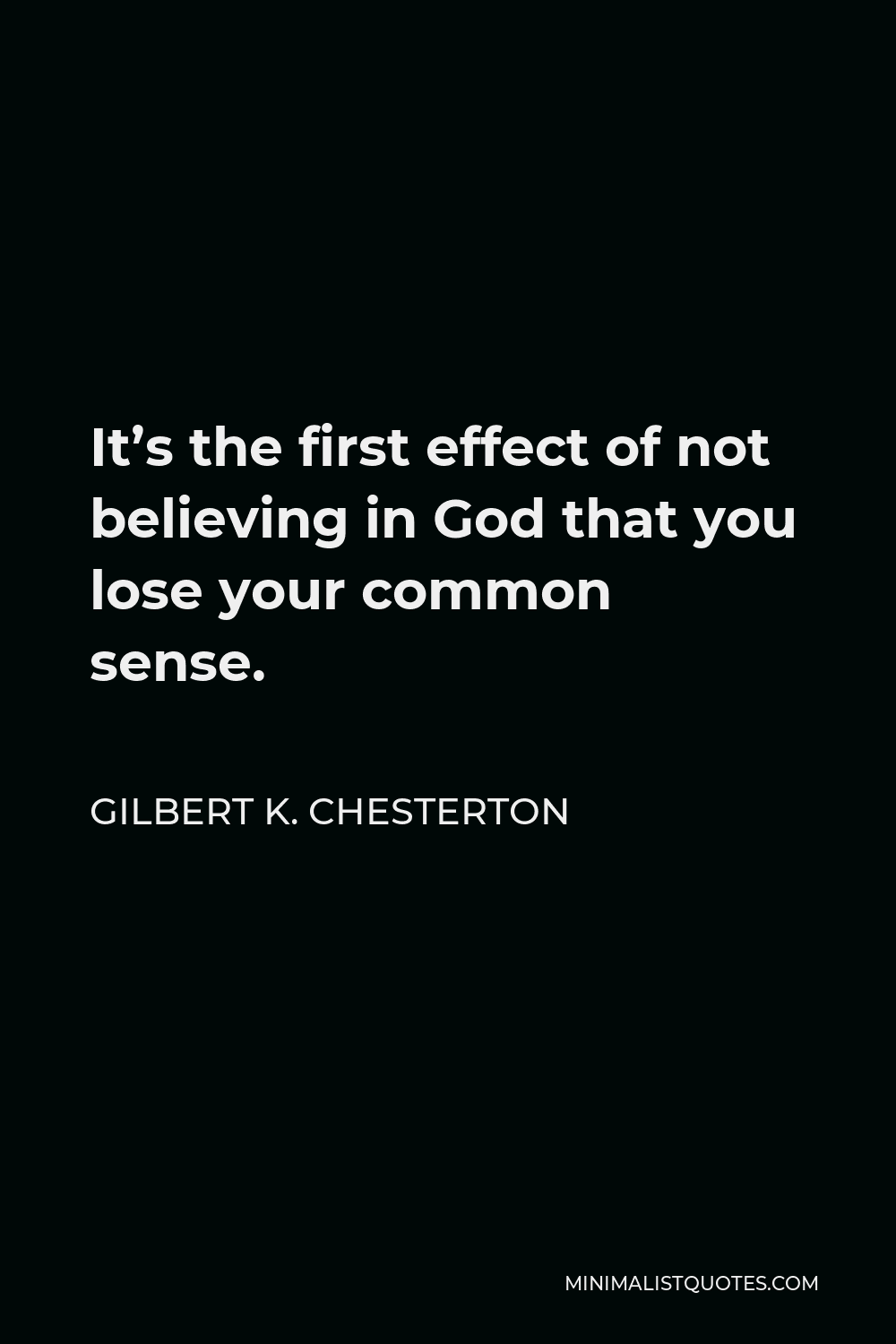
It’s the first effect of not believing in God that you lose your common sense.
GILBERT K. CHESTERTON
